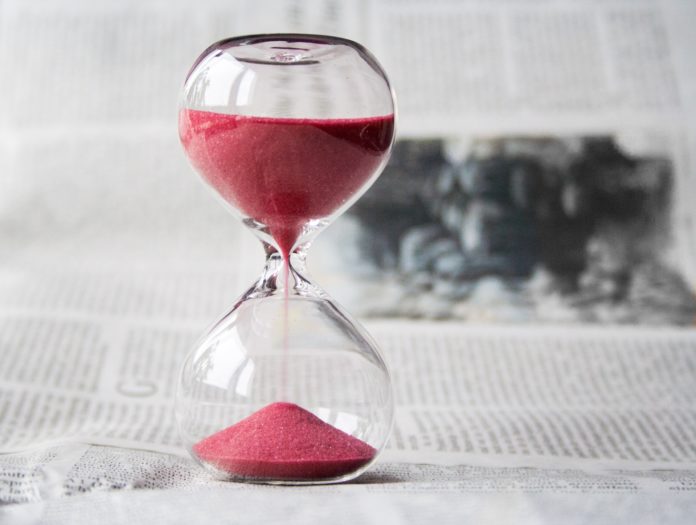We all require a minimum number of hours of sleep each night so that we can perform at our best the following day. Generally, the rule is eight hours of sleep per night, though some people need ten, while others get by on six.
Sleep deprivation can occur when you don’t get enough hours of sleep each night. While it’s possible to catch up the following night, over time, insomnia can be detrimental to your health and your performance.
Everything from your brain’s cognitive function, to your body’s physical mechanics, and even your emotional and physical health can be affected by a lack of sleep. The detrimental affects from the lack of sleep can even extend to your sexual life.
Some people suffer from temporary, or acute sleep deprivation, while others suffer it chronically or long-term.
General Causes of Sleep Deprivation

Sleep deprivation can have nearly limitless causes including something as simple as an inadequate sleeping environment. Partners or babies can keep you awake. Noise from the neighbors or inadequate window coverings can also keep you from sleeping.
Hormonal imbalances can be some of the trickiest to diagnose but are often the simplest to treat with medications. Other medical conditions can lead to insomnia and sleep deprivation, including diabetes, heart disease, thyroid disease, and even the common cold or flu bug.
Poor mental health can lead to sleep deprivation, as you lay awake all night long worrying about your relationship, your stressful job, bad finances, or even having to speak in public. You may be suffering from anxiety or worries about common everyday life but not have the proper tools to deal with these concerns.
Short-term Effects of Sleep Deprivation

There’s not one person alive who hasn’t experienced sleep deprivation at some point in their life. The immediate short-term effects of sleep deprivation can leave you feeling unwell the next day. You’ll feel tired and fatigued, and not as alert to do your job or perform well in school.
If you have a significant role at work where you must make important decisions, sleep deprivation can affect your ability to mentally perform your job. If you do physical labor, sleep deprivation can affect your body’s physical ability to do that job. In the first instance, your boss may be annoyed at you, but in the second instance, it can expose you to serious injuries or even death if you’re not functioning at 100% each day.
Long-term Effects of Sleep Deprivation

The long-term effects of sleep deprivation can be extremely bad for your body. These can range from long-term depression, to heart disease, diabetes, hallucinations, and even seizures. While short-term effects of sleep deprivation can be reversed, over time, failure to treat your insomnia condition can result in permanent damage.
Permanent damage to your heart or circulatory system is going to affect your daily performance. You can manage your diseases or health conditions with medications, but these still aren’t really getting to the root of the problem as to why you have sleep deprivation in the first place.
Sleep-deprivation can be physically as well as psychologically damaging. You’ll have a high risk of developing psychosis and bipolar disorder. Your lack of sleep will keep you from putting events into the proper perspective and keep you from making suitable decisions.
It’s even believed that sleep deprivation can slow down the healing of wounds and injuries. If you are an athlete, this can affect your physical performance for competitive events.
Does Sleep-Deprivation Really Affect Your Performance?

When you get up in the morning after a bad night’s sleep and head into work, it’s interesting to note what happens inside your brain. When you go to perform your job, your brain’s prefrontal cortex will display much more activity than if you had a good night’s rest. This is the region of the brain that’s responsible for your memory and your logical and practical reasoning.
This means that your brain must work harder on those days when you didn’t get a good night’s sleep. Your brain is trying to compensate for any adverse effects caused by your insomnia.
Other things happen in your brain too. The temporal lobe does not get activated when you’re sleep-deprived. This is responsible for verbal learning. This means that you won’t be able to absorb any knowledge if you’re exhausted from a lack of sleep.
How Does Performance Affect Sleep Deprivation?

Performance – or how active one is – can also affect sleep deprivation. The active person is one who can sleep well at night. People who sit and stare at computer monitors all day can be affected by sleep deprivation. The screens and devices emit blue light which can trick the brain into thinking that it’s still daytime.
Sitting in front of a computer all day long, then going home at night to stare at a device and television for the remaining hours will confuse the brain. Many office workers experience insomnia, which leads to sleep deprivation.
A sedentary lifestyle can also lead to sleep deprivation. The human body was designed for movement. Early cavemen and women were active for the daylight hours of the day. They had no comfy couches, no TVs, and no computers.
We spend all day doing nothing physical, then expect our brains to turn off at the end of the day. Unfortunately, since we’ve done little in the way of performing during the day, our brain won’t shut down at night because it thinks that it can’t be the end of the day, as you did basically nothing.
Awareness of Sleep Deprivation & Performance Together

Once you understand the role of greater performance helping you to sleep at night, and how sleep deprivation can affect performance, you can begin making small adjustments in your lifestyle.
There’s no guarantee that you’ll get your eight hours of rest every single day of the month, but it’s possible to improve the quality of your sleep so that you can perform well every day.




